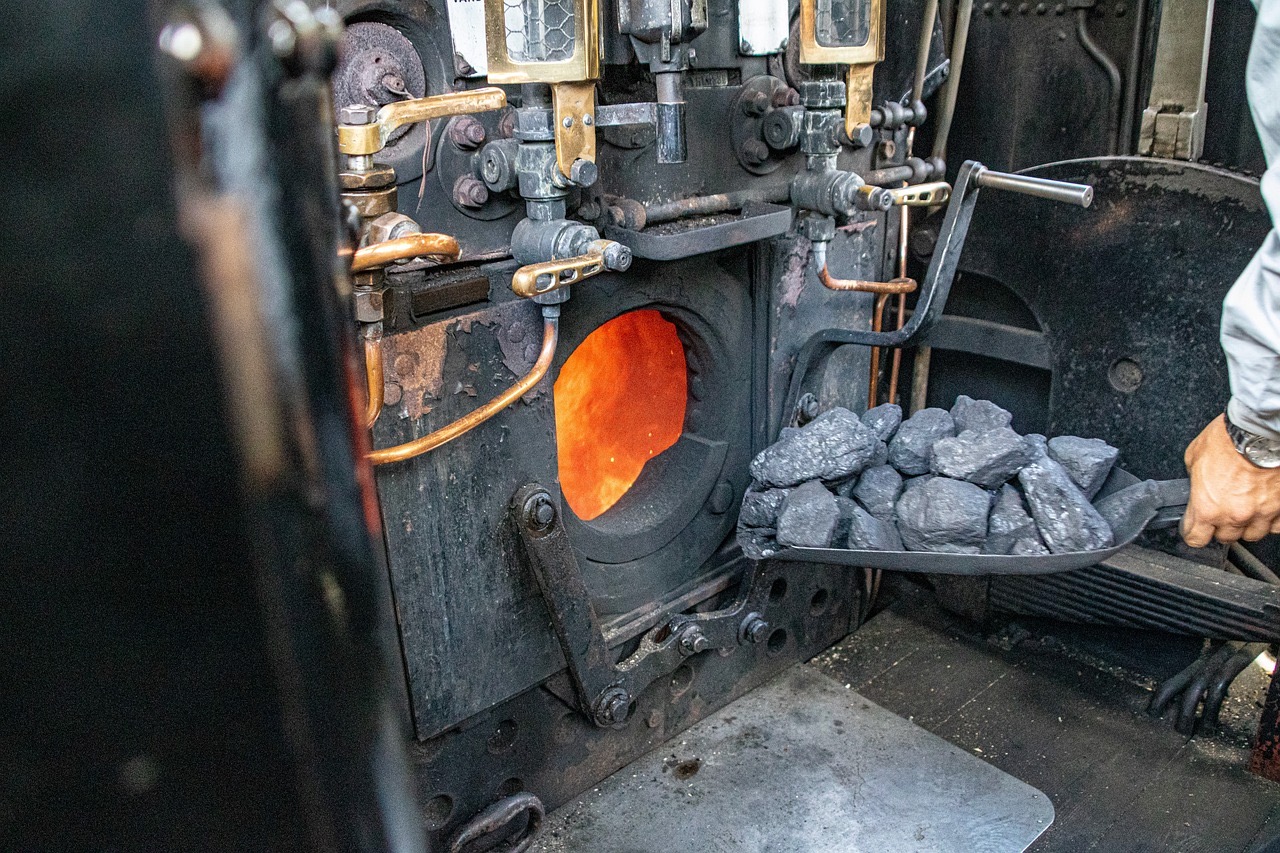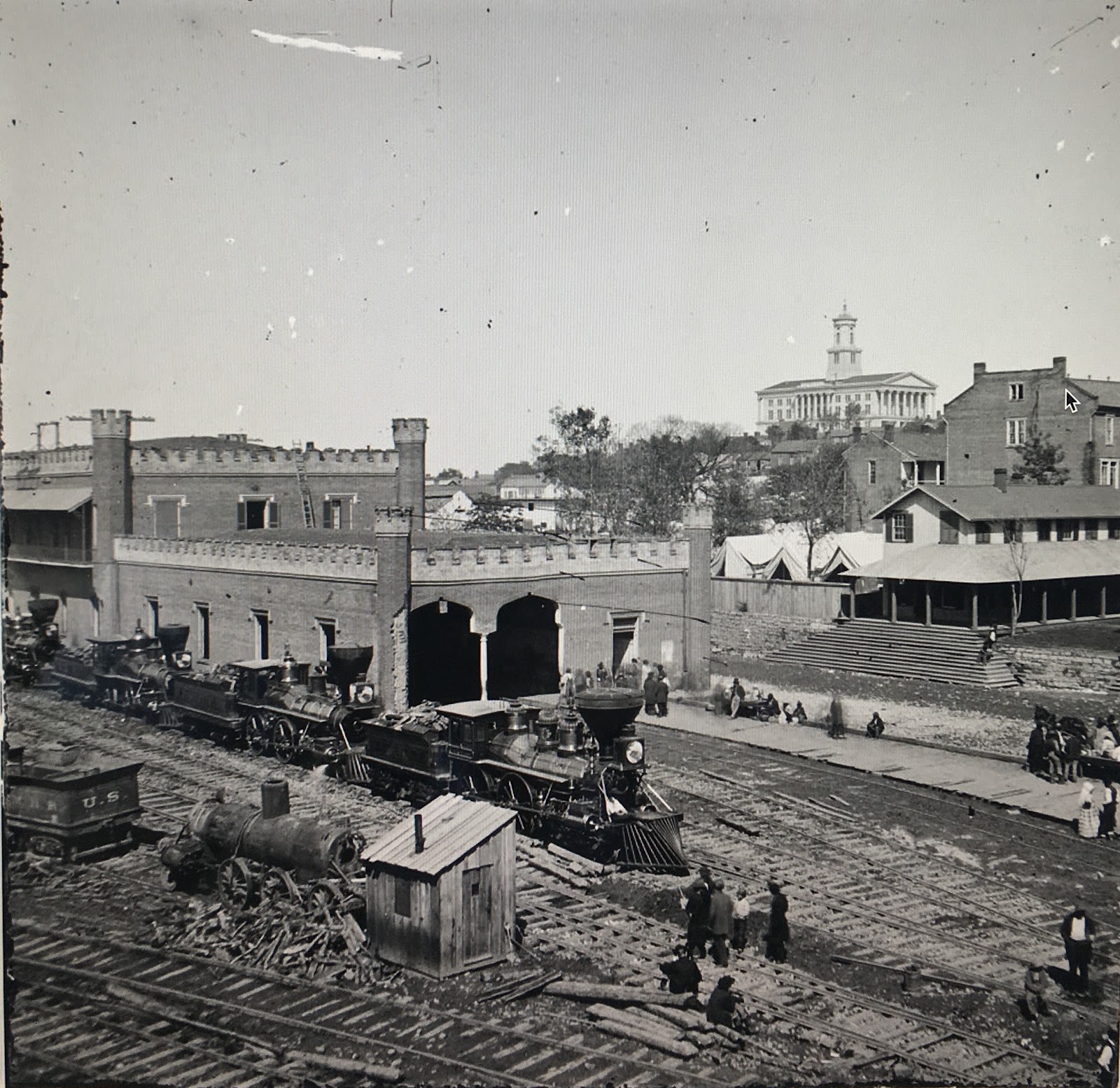"Pap Russell was a railroad man" seems like a fitting epitaph for William Hall Russell, my 2nd great-grandfather. But it took a lifetime of work to gain that title.
Since the 1730s, William's ancestors lived near Brookline, New Hampshire. His parents, Campbell Russell, and Lucretia Melvin, married in 1819 and resided near Brookline's forests. William was born in 1835, the last of the nine children born to the couple. His father died when he was three. Life became very difficult for his family. While Campbell was alive, they cut trees, made charcoal, and sent it to the forges in North Chelmsford. They also farmed part of their land, which continued after his death.
In 1848, the family moved to Nashua, New Hampshire, believing they could find factory work. William worked in a cotton mill for a year. He did not like working indoors, so he left, looking for a job that allowed him to be outdoors. He spent a year as a peddler carrying his wares in trunks strapped to his back.
When William was sixteen, he made a choice that would change the course of his life. He started work as a section man for the old Fitchburg Railroad near his home in Nashua. When fall came, the railroad paid him to watch the engine for the winter. Perhaps that cold, lonely winter with the train helped him decide what he wanted for his future.
In 1852, when he was seventeen, he moved from New Hampshire to Ohio to continue his railroad work. He laid tracks from Springfield to London, Xenia to Dayton, and Springfield to Delaware. When he completed his work on these routes, he became a fireman on one of the trains. Firemen tended and maintained the fire that kept the engine running and many other tasks that ensured the engine kept running efficiently. It was a hard, dirty job. He was allowed to fill in for a vacationing engineer. When the engineer returned, he returned to the hard labor of shoveling coal for the engine. But by the following year, he was again an engineer on the train.
He married my second great-grandmother Sarah Elizabeth Butts in 1854. They would have three children, including my great-grandmother Mary "Birdie." By 1856, he moved to Nashville, Tennessee, and found low-paying work at a railroad standstill, eventually moving to work as a railroad switch installer. From a letter of recommendation, we know he ultimately worked as an engineer in the Nashville area for several years leading up to the Civil War.
Control of the Louisville & Nashville railroad was essential to winning the war. The military used the railroad for carrying supplies and sometimes troops. Fighting happened up and down the rails. While the war raged on, both armies destroyed and rebuilt the tracks numerous times. After the Battle of Nashville, city leaders evacuated the city, and the railroad fell under the command of the Union. William decided he did not want to move his family south and kept them in Nashville.
When the federal army came into Nashville, he met an old friend from a previous job, John B. Anderson. Mr. Anderson was now the Superintendent of the Military railroad division in the Nashville area. Mr. Anderson gave William the job of setting up and running the first engine sent in by the government. He ran the engine, Little Jupiter, until the Union returned the line to the company at the war's end. He continued to work for the government after the war in railroad procurement. He was also known as a master railroad mechanic.
Eventually, he moved to Kentucky, where he would finish off his forty-four-year career with the railroad, forty years spent as an engineer. His wife, Sarah, died in 1888. In 1890, he returned to New England to marry his cousin, Sarah Russell. She would raise my great-grandmother, Birdie, in Louisville and Bowling Green, Kentucky. William died in Kentucky in 1901.
Both of Russell's sons became railroad men. On the 1880 US Federal Census, his 20-year-old son, C.W. Russell, was listed as a railroad fireman. His brother, Thomas, was listed as a train engineer on the 1900 and 1910 census. Thomas was a 35-year member of the Brotherhood of Locomotive Engineers at his death.
I have found many newspaper articles about William and his work with the railroad. One was an extensive article about his life; the others were short, descriptive vignettes. These articles supplemented census and town records, giving a much fuller view of the life of William "Pap" Russell.
Two of my favorite short articles give insight into Williams's work and life. The first describes:
"This old veteran, who is now on the Elkton &
Clarksville run, while on duty never sits down,
but in a standing position, ever on the lookout
for an open switch or an obstacle on the road.
He claims that an engineer is more apt to
forget his duty when sitting down, and that many
of the accidents are caused by the engineer
sleeping while on duty."
The second tells a harrowing tale:
"Pap" Russell, one of the oldest locomotive engineers
in the employ of the L.&N., was struck by his own
engine in the Guthrie yards Saturday night and it
was at first thought he had been fatally injured. He
had just had supper and coming out of the hotel undertook
to cross the track in front of the engine, which was in the
charge of his fireman. The locomotive knocked him down
and when picked up was unconscious condition. He was taken
to the hotel and Dr. Marshall was immediately summoned.
An examination showed no bones were broken, but
the shock had paralyzed the old man and it was
about two hours before he showed signs of relief."
"Locomotive Blasts" The Bee (Earlington, Kentucky), 23 November 1893, p. 3, col. 4; digital images Newspapers (https://www.newspapers.com/image/145526788/?terms=Paps%20Russell&match=1 : accessed 2 August 2021)
"Struck by His Own Engine." Hopkinsville Kentuckian (Hopkinsville, Kentucky), 19 June 1895, p. 1, col. 3; digital images Newspapers (https://www.newspapers.com/image/68182254/?terms=Paps%20Russell&match=1 : Accessed 2 August 2021)







No comments:
Post a Comment